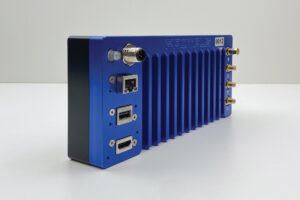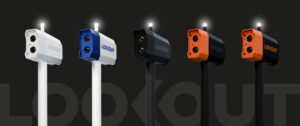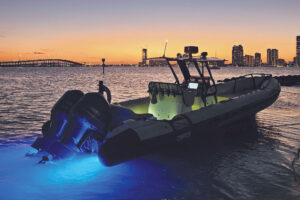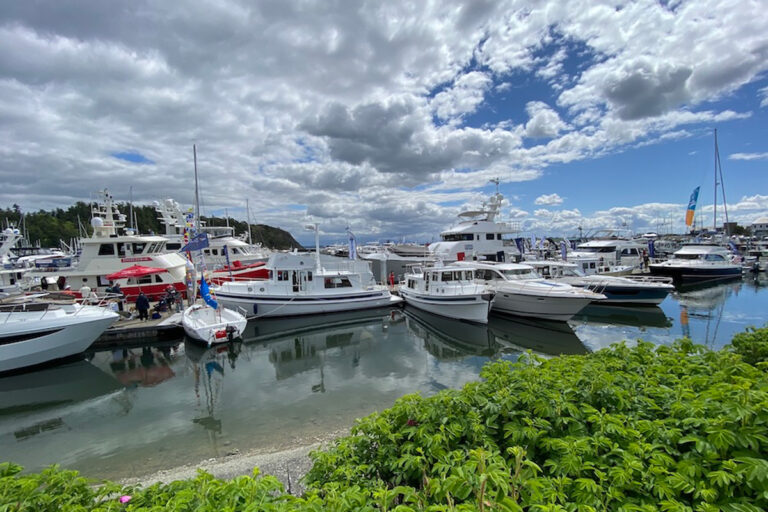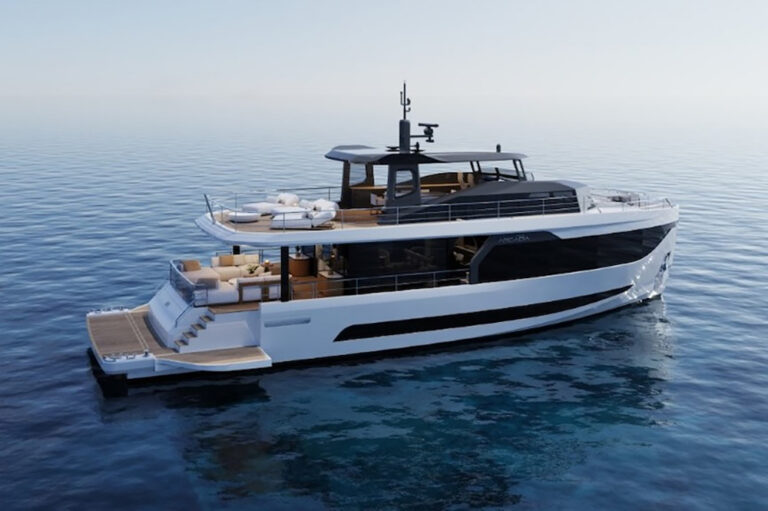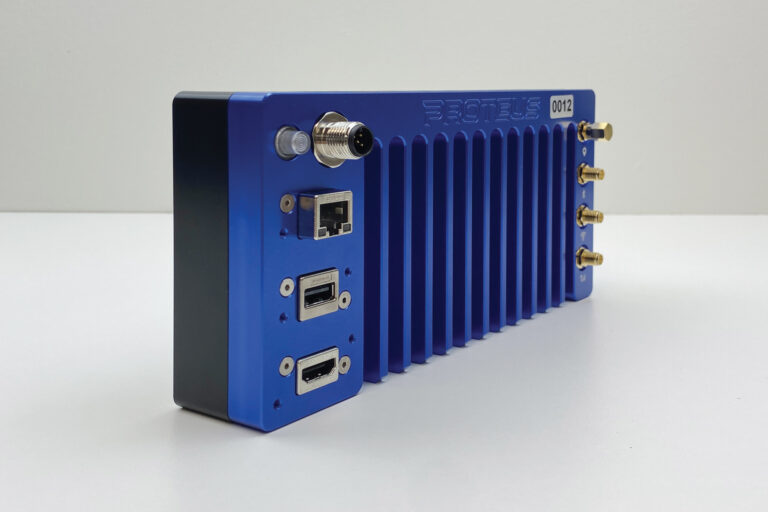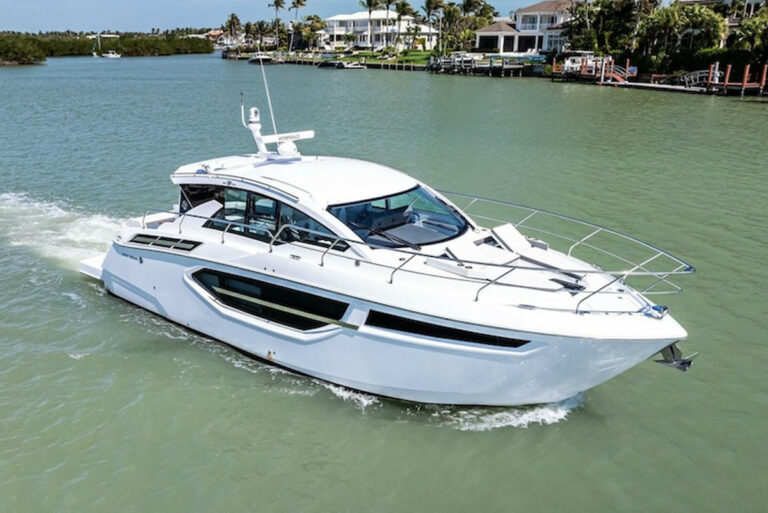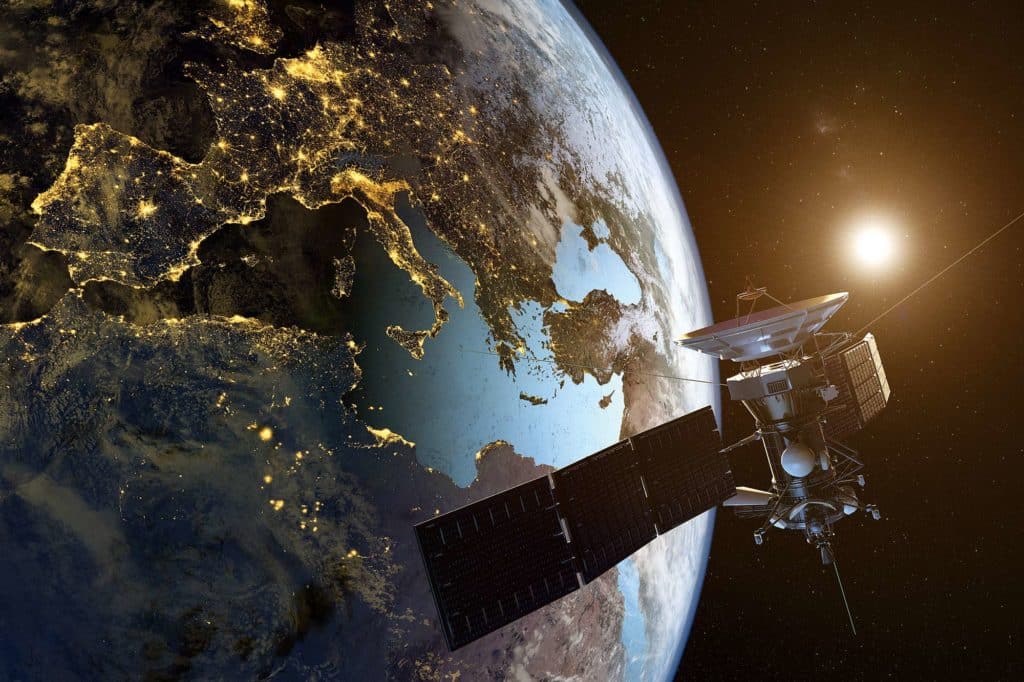
The RMS Titanic sailed into infamy when the ship fatally collided with an iceberg on April 14, 1912, taking the lives of more than 1,500 passengers and crew. Generations of naval architects and engineers studied and learned from this tragedy, as did the U.S. Congress, which passed legislation requiring U.S.-flagged ships to carry radiotelegraph equipment for sending and receiving Morse code distress signals. This requirement set the foundation for what became the International Maritime Organization’s Global Maritime Distress and Safety System in 1979.
And yet, while GMDSS has helped to save countless lives since its inception, the equipment it required was bulky and expensive, pushing it out of practical reach for most yachtsmen.
GMDSS has used satellite- and Earth-based radio signals since the late 1980s to facilitate communications between stricken mariners and a Rescue Coordination Center. GMDSS terminals have been permanently fitted to vessels—unlike, say, EPIRBs, which are portable.
That’s all about to change. Historically, Inmarsat has been the only IMO-recognized GMDSS-network satellite service provider, but recently, Iridium was recognized too. This means competition that is already spurring GMDSS innovations on both the hardware and network fronts.
Innovations we’ve seen so far include nonemergency airtime rates from Iridium and hardware advances such as Lars Thrane’s LT-3100S terminal—the first that is designed to operate on Iridium’s GMDSS network and delivers GMDSS emergency- and nonemergency-communications capabilities in a package that can complement many yachts.
Iridium’s Next network of 66 cross-linked, low-Earth-orbit satellites operates on the L band and provides global communications using Iridium’s Short Burst Data messaging service that transmits small, low-bandwidth data packets. For mariners, this means universal access to SMS, email, GRIB weather files, official maritime-safety information, and emergency and nonemergency voice calls.
It’s all delivered via Iridium’s circuit-switched data capability, which doesn’t have VSAT-level speeds. But that doesn’t really matter because there’s no downloads of high-resolution images, video or vector-cartography involved. However, unlike VSAT, GMDSS prioritizes emergency communications over nonemergency conversations and data—and VSAT can’t be used for GMDSS communications. GMDSS emergency services and communications (including maritime-safety information) are free of charge, while nonemergency communications require an airtime subscription; GMDSS services will still work even if a subscription has expired.
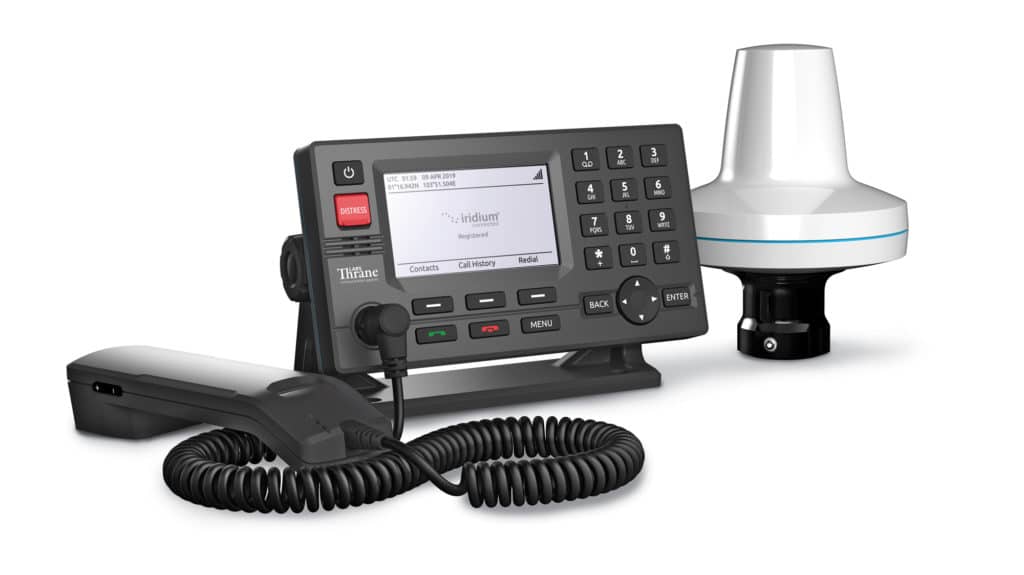
Hardwarewise, Lars Thrane’s LT-3100S consists of a handset, a soda-can-size antenna, and a Bluetooth-enabled control head with an embedded GPS/GNSS receiver. The LT-3100S is the first GMDSS terminal to offer full GMDSS capabilities plus built-in voice. Should calamity strike, users press the terminal’s red emergency button. The system pings the closest Rescue Coordination Center with an electronic satellite distress signal—including vessel name and navigational details—before automatically placing an emergency voice call to the center, which notifies the proper rescuing authorities and all nearby GMDSS-equipped vessels.
“It’s a huge advantage to have emergency voice, as you can give the [rescue center] your full details,” says Peter Thrane, Lars Thrane’s CEO, adding that the LT-3100S terminal can send and receive data at 2.4 Kbps; with back-end compression, the rate can increase to 10 Kbps.
As Wouter Deknopper, Iridium’s vice president and general manager of maritime, says: “You can make [nonemergency] calls at affordable prices, and it’s good enough for downloading email and GRIB files, but I wouldn’t surf the internet at these speeds.”
For boaters interested in downloading GRIB files or sending and receiving data, the LT-3100S transmits and receives files as small packets of data, not large files. Should the connection get disturbed midtransmission, the system resumes where it was interrupted. This process reduces airtime costs and allows users to upload or download (relatively) large files over a low-bandwidth system—sans fear of the system’s priority-and-preemption scheme inconveniently resetting the clock.
This same data-transfer scheme makes nonemergency GMDSS communications an interesting proposition for automated cloud reporting. “We can, and do, a lot with maritime [internet of things] solutions, such as onboard alarms and vessel tracking,” Deknopper says.
Pricing wasn’t available at press time, but Iridium says the LT-3100S—which should begin shipping in early 2020—will represent considerable savings over comparable systems. Deknopper stresses that Iridium plans to offer competitive prices for nonemergency GMDSS communications, as well as other enticements. These include contract-winterization options and access to Iridium’s network of partners, which can provide itinerary-specific information.
“If you’re navigating through an [ice-strewn] area, you can get [navigational] information from our Russian partners,” Deknopper says, adding—for anyone transiting the Horn of Africa—that the LT-3100S supports anti-piracy communications.
And, thanks to the control head’s Bluetooth capabilities, users can tether their smartphones to the LT-3100S and use their familiar device for nonemergency GMDSS communications.
The LT-3100S’s small form factor, its ability to provide fully global GMDSS communications, weather and navigational updates, and its purported affordability make it a serious consideration for any bluewater cruiser, offshore angler or high-latitude adventurer. And, should things turn south someplace far north (or south), deliverance will be a matter of talking with a rescue center or fellow mariner, not rearranging the deck chairs on your own private Titanic.

